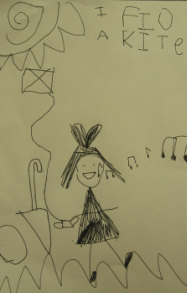While I was at Vermont College, I learned an insightful question, for women in particular, to ask of ourselves: Who were you before you put yourself last? For many of us, finding out who we were means looking back to when we were teens, when we first began thinking we understood what set us apart from the world and that we knew how we would live our lives. We didn’t know, of course, but oh, the confidence of thinking we did.
I am enchanted by the ending of one of my favorite short stories, Bullet in the Brain by Tobias Wolff, when Anders, the main character, remembers how he once was “strangely roused, elated, by” the “pure unexpectedness” and “music” of words. When we who are writers finally stake our claim upon words, how deeply satisfying it is to remember back when they first charmed us.
I am also mesmerized by a passage from This Boy’s Life – A Memoir by Tobias Wolff, when he describes being a troubled young man at a tailor’s shop, outfitted in a black cashmere overcoat with a claret silk scarf, looking in a mirror:
The elegant stranger in the glass regarded me with a doubtful, almost haunted expression. Now that he had been called into existence, he seemed to be looking for some sign of what lay in store for him.
He studied me as if I held the answer.
Luckily for him, he was no judge of men. If he had seen the fissures in my character he might have known what he was in for. He might have known that he was headed for all kinds of trouble, and knowing this, he might have lost heart before the game even got started.
But he saw nothing to alarm him. He took a step forward, stuck his hands in his pockets, threw back his shoulders and cocked his head. There was a dash of swagger in his pose, something of the stage cavalier, but his smile was friendly and hopeful. (p. 275-6)
We do not know what lays in store for us, but there is joy in knowing that a writer’s career never ends – a writer can be published for as long as he or she can compose words. And it doesn’t matter if what was written the day before was dribble. Every day is a fresh opportunity, a clean slate to claim who we are.
I am enchanted by the ending of one of my favorite short stories, Bullet in the Brain by Tobias Wolff, when Anders, the main character, remembers how he once was “strangely roused, elated, by” the “pure unexpectedness” and “music” of words. When we who are writers finally stake our claim upon words, how deeply satisfying it is to remember back when they first charmed us.
I am also mesmerized by a passage from This Boy’s Life – A Memoir by Tobias Wolff, when he describes being a troubled young man at a tailor’s shop, outfitted in a black cashmere overcoat with a claret silk scarf, looking in a mirror:
The elegant stranger in the glass regarded me with a doubtful, almost haunted expression. Now that he had been called into existence, he seemed to be looking for some sign of what lay in store for him.
He studied me as if I held the answer.
Luckily for him, he was no judge of men. If he had seen the fissures in my character he might have known what he was in for. He might have known that he was headed for all kinds of trouble, and knowing this, he might have lost heart before the game even got started.
But he saw nothing to alarm him. He took a step forward, stuck his hands in his pockets, threw back his shoulders and cocked his head. There was a dash of swagger in his pose, something of the stage cavalier, but his smile was friendly and hopeful. (p. 275-6)
We do not know what lays in store for us, but there is joy in knowing that a writer’s career never ends – a writer can be published for as long as he or she can compose words. And it doesn’t matter if what was written the day before was dribble. Every day is a fresh opportunity, a clean slate to claim who we are.

 RSS Feed
RSS Feed